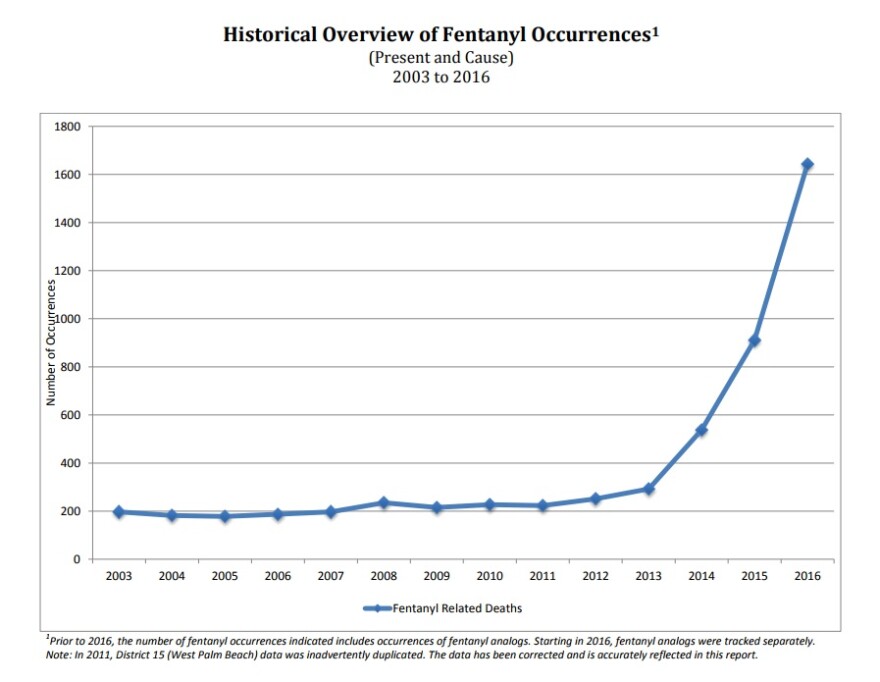The latest figures from Florida’s medical examiners show sharp increases in drug related deaths. Across all substances, 22 percent more Floridians lost their lives in 2016.

The medical examiners identify 11,910 drug related deaths in 2016. In almost 6,000 of those, opioids were present or the cause of death—35 percent higher than 2015. Fentanyl and its analogs caused more than 2,300 deaths.
While legal and illicit opioids are found in about half of the total cases, the examiners report significant increases for other drugs, too. Cocaine caused more than 1700 deaths—almost 800 more than 2015 figure. The examiners are also pointing to disturbing trends with drugs like Xanax and Valium, known as Benzodiazepines. That class of drug accounted for roughly 1,400 deaths.
Meanwhile, a Florida Senate committee is considering the criminal justice side of the opioid epidemic.
“Incarceration may satisfy a punitive impulse,” Julie Warren from Right On Crime says, “but it will not cure the abnormality in the brain caused by opioid addiction.”

The conservative organization pushes state lawmakers to reconsider the “tough on crime” approach to drug laws popular in the 1980s and 90s. They have a receptive ear in committee chairman Jeff Brandes. The St. Petersburg Republican Senator is backing a measure allowing judges to reduce mandatory minimum sentences in certain circumstances.
Right On Crime and a handful of service providers are pitching a number of reforms including diversion programs like drug courts and increased access to drug treatment in jails.
Gateway Community Services CEO Candace Hodgkins says the three most common treatments should be readily available.
“The individual in the jail needs to have options,” she says, “because Vivitrol doesn’t work for everybody. Some people don’t want to stay on the opioids, so they don’t want methadone or [buprenorphine]. Some do—so they need to be able to, with their medical staff, choose what’s best for that person.”
Vivitrol blocks opioid receptors in the brain but patients have to go through detox before using it. The other two common treatments are opioids themselves, used to ween a person off another drug. All three treatments combine counseling with medication.





